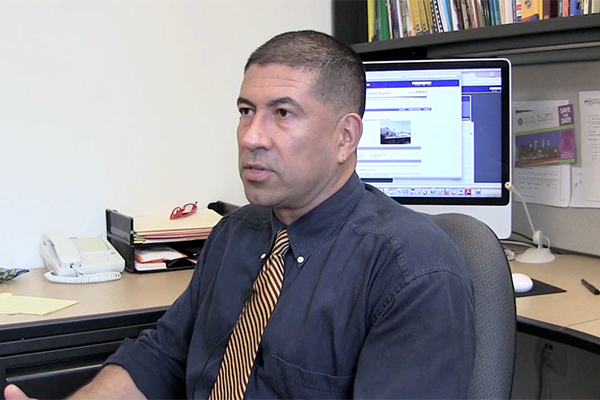Technology in the Classroom
Professor applies technology to UD's study abroad program
(Editor's note: This article is part of a continuing series by University IT on innovative use of technology in campus classrooms.)
10:39 a.m., Oct. 24, 2012--Jorge Cubillos, an associate professor in the University of Delaware’s Department of Foreign Languages and Literatures, helps students to stay connected with one another through Facebook Groups and to demonstrate their language proficiency through multimedia projects posted to a blog.
“Technology, as an integral part of students’ lives, is important to incorporate into their studies. In the area of languages, it is a very simple and logical extension of what they can do to learn and master the language,” Cubillos said.
FYI Stories
June 6: UDid It! Picnic
2FA protects you
By connecting study abroad students through Facebook Groups, the students get to know one another before the trip. “I use it in my study abroad program in Panamá as a way of bringing the group together and increasing cohesion.” Cubillos refrains from participating in the group to allow the students to network freely. (Watch the video.)
Once abroad, the group demonstrates their language proficiency by posting multimedia projects to a blog. The blog uses WordPress, a platform that is freely available to faculty through sites.udel.edu. (View the blog from the winter 2012 trip to Panamá). Projects consist of videos, pictures and written recounts of experiences the students had in Panamá. (Watch the video.)
“We can encourage the development of oral skills with multimedia production. Students create multimedia projects by filming themselves presenting monologues, recording conversations or demonstrating something they are particularly good at,” Cubillos said. (Watch the video.)
These projects showcase the students’ speaking about their living arrangements with their host family and include the interview of a native speaker as well as recommending certain experiences they had in Panamá. All students participate in a service learning experience with an orphanage in that country.
“It is very important for me to replicate the use of language in the real world in our language classes,” Cubillos explained, “Students interact with each other on a daily basis; in many cases they do this with technology. So I wanted to incorporate those technologies into those daily interactions.” (Watch the video.)
Journal entries are another way of getting students to use their language skills, particularly in the area of writing. Every week, students post a summary of their week, along with photos.
“Students have the opportunity to write consistently on topics that are of interest to them. When you write about something that is interesting to you, you pay more attention to it and do it with more enthusiasm, which is beneficial in the areas of fluency and grammar.”
All multimedia and written assignments are posted to the blog. Other members of the group can view these experiences and share their own through multiple mediums using the blog as a social platform. Cubillos has found these technologies to be a great asset in the area of language and plans to continue using these methods on future study abroad excursions.
Article by Sarah E. Meadows











